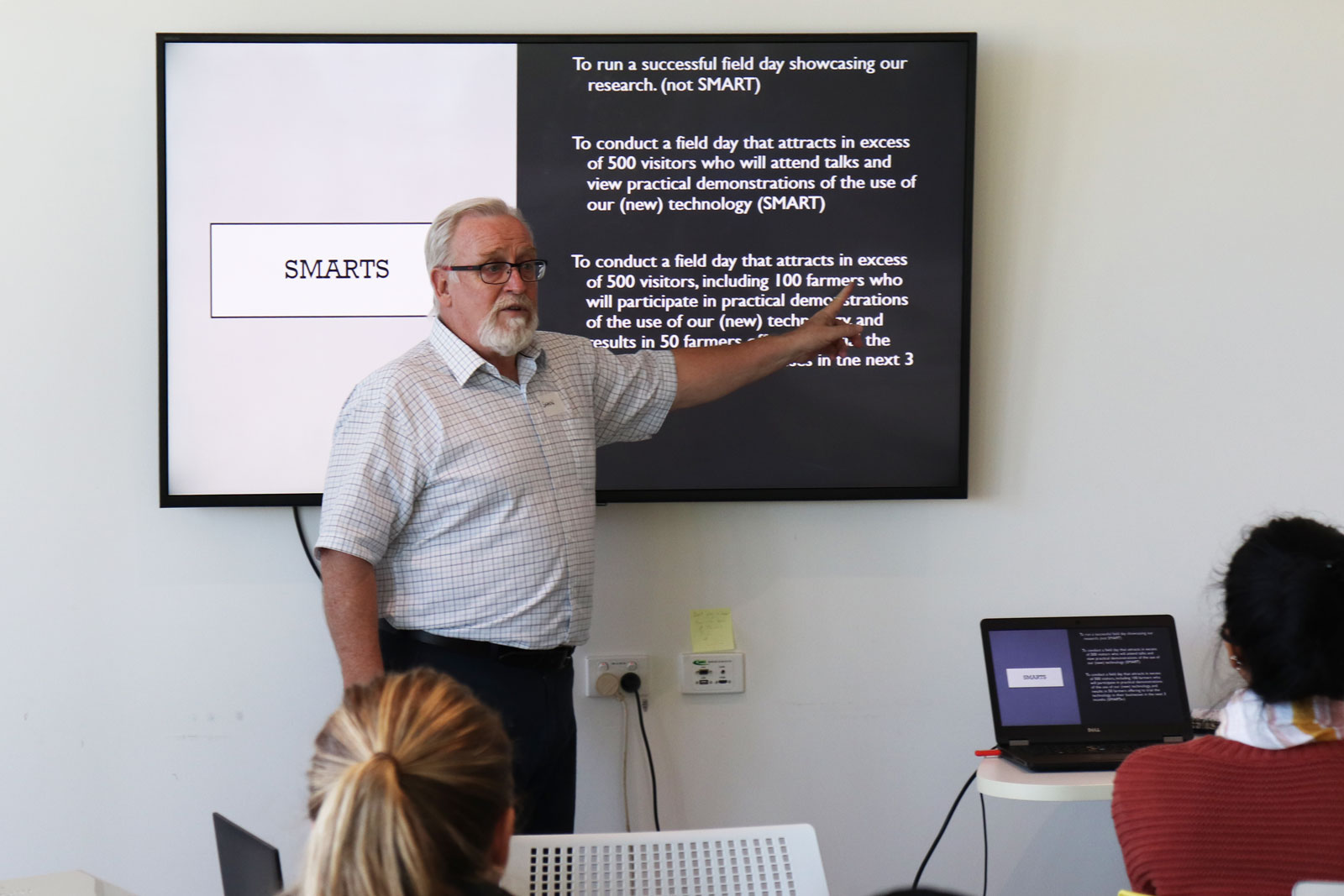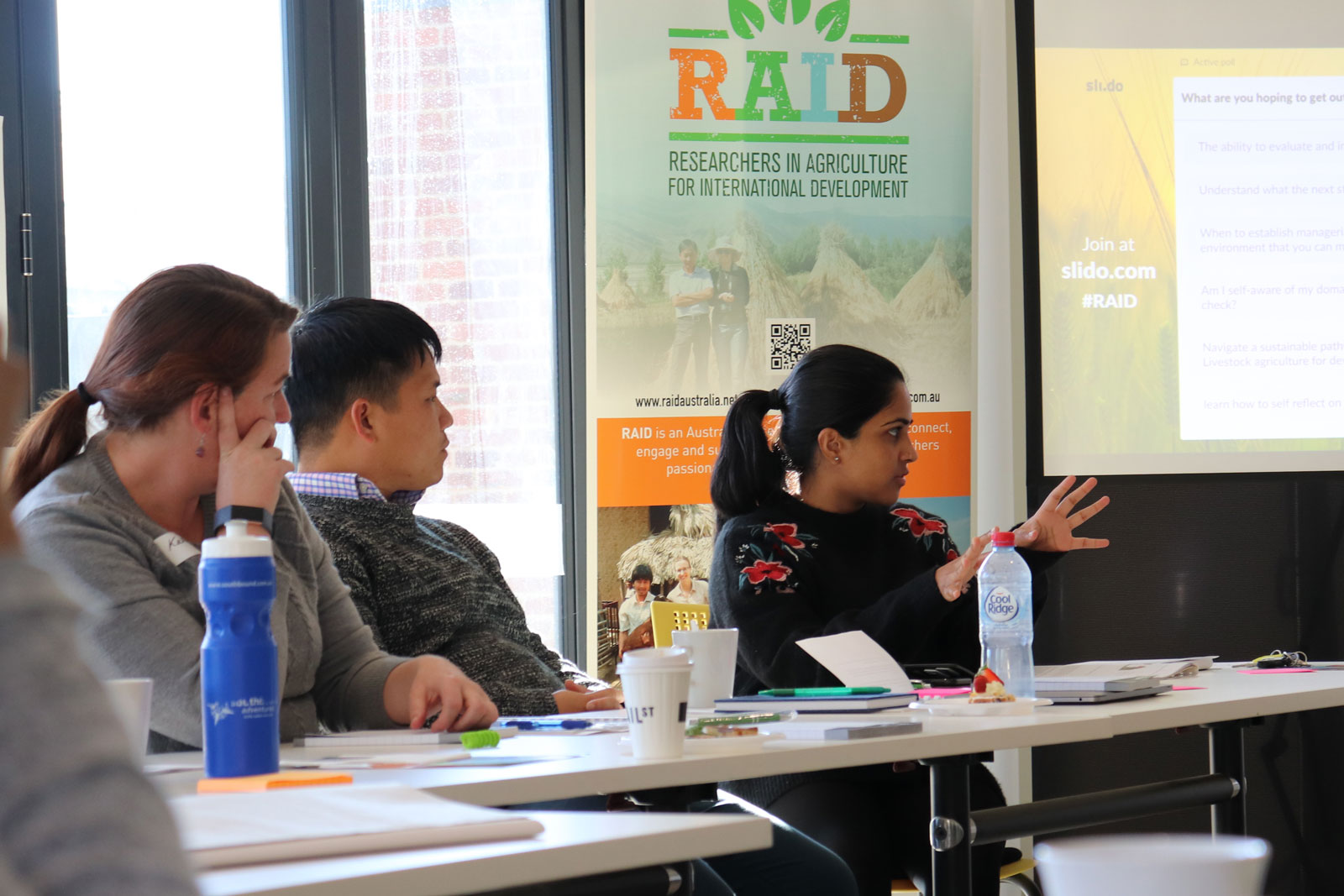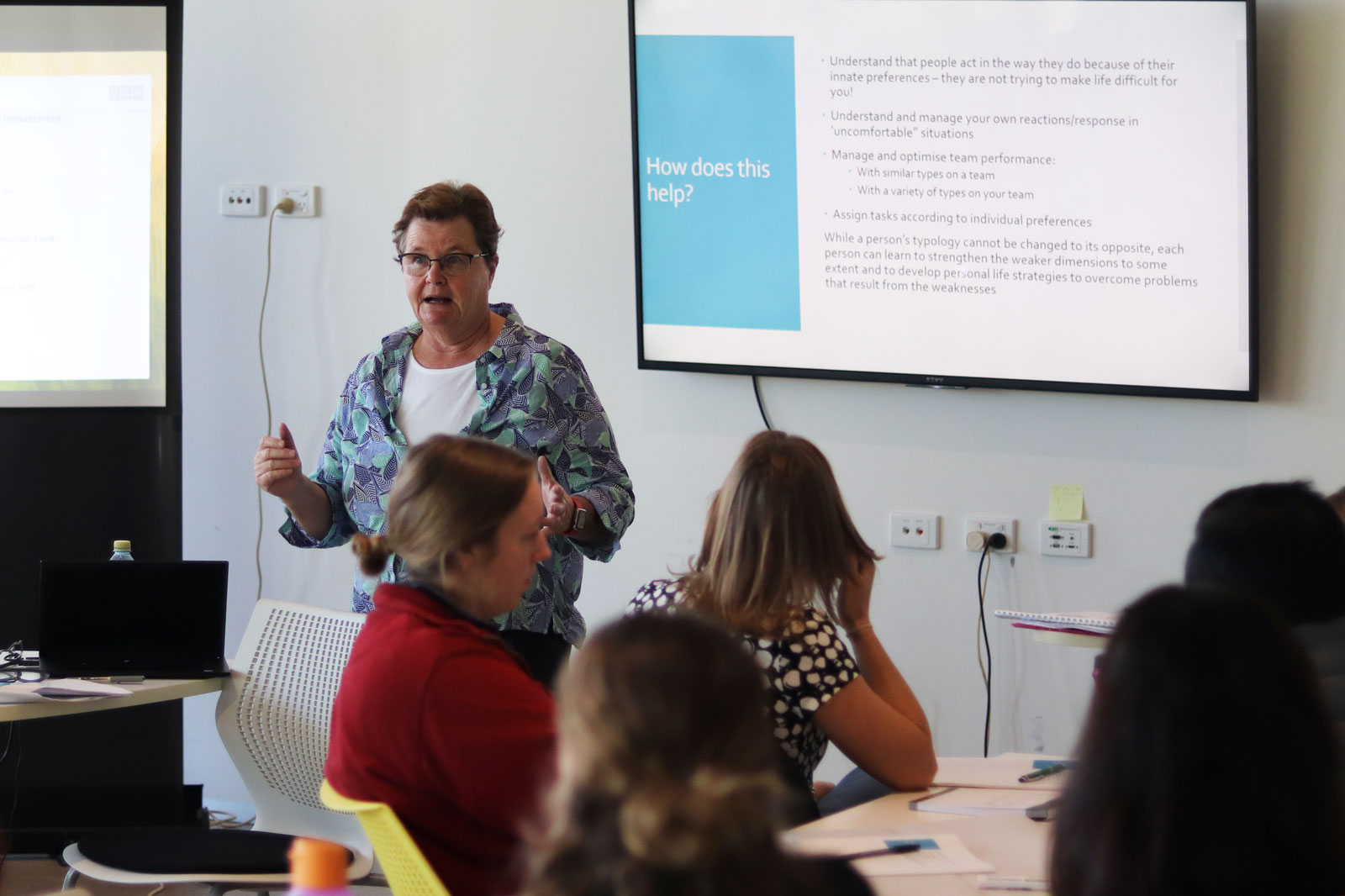

Research management insights from Mali to Mexico: It’s all about people and relationships
July 4, 2019

By Shaun Coffey, Director of Capacity Building, The Crawford Fund
Over the last three years the Crawford Fund has conducted three global Master Classes on leadership and management of agricultural research, drawing together over 75 professionals from the Australian Centre for International Agricultural Research (ACIAR), National Agricultural Research Systems (NARS), international centres from Mali to Mexico and all parts in between. A further four workshops with the Australian RAID Network (hosted by the Fund) on the same topic have brought together 75, mostly early- and mid-career professionals from around Australia. Many being international students training in our universities. These groups of people together reflect enormous experience and latent potential and have been a powerful learning community for the Fund.
A key learning from these people is the reinforcement of the well-recognised fact that good research teams thrive on collaboration and trust. And effective leaders of international agricultural research are adept at building the collaborative and trusting relationships needed to make this happen.
These leaders bring together people with diverse and variable skill sets, knowledge and cultural backgrounds. This is especially important in agricultural research for development where we often see knowledge generated in one country or region of the world with one set of partners, and then applied in other environments in other parts of the world with different partners and environmental conditions.
Australia has an enviable track record in providing technical and discipline education and training for agricultural scientists, but it has only been in recent years that more concerted efforts have been put into systematically building “soft” skills such as interpersonal communication and people management. While the Crawford Fund had been working in soft skills through its general training program and the introduction of the Master Class in Communication, developed in 2011, it is now more committed to this following a review of Master Classes in 2015, and more recently ACIAR has initiated an exciting program of leadership development delivered by the University of New England for recipients of their prestigious John Allwright Fellowships.
Good research leaders need to do three things exceptionally well:
- negotiate a focus on results that benefit communities and society;
- inspire teams and create a work environment that fosters inclusion, collaboration and respect; and
- empower people to challenge the status quo, to contribute beyond the boundaries of their designated roles, to continuously learn and develop, and to take charge of their own career development.

In research, our education focuses predominantly on the development of technical competencies and the development of deep knowledge allowing us to be known as experts in a specialised field or discipline. Often it is the credibility of people as experts that identifies them as candidates for management and leadership positions.
When experts are asked to move beyond their expertise and to lead groups of people with a range of expertise and experience, they often struggle to gain basic competencies in myriad areas of the operation of projects, of teams and of organisations that goes with the manager’s job. In running both the Master Classes and workshops, I have found it is common for workshop participants to report that they were neither prepared for, nor provided with the necessary training to move into management. But sooner, rather than later, most researchers are thrust into situations where people, team and project management skills are required. It is never too early to learn about these.
The transition presents a significant opportunity to guide directions and to establish new and exciting goals, and this is where domain or discipline expertise really comes to the fore. It also presents new problems and a need for a new mindset.
Fundamental to the transition is a recognition that whilst management requires you to gain a basic understanding and competencies in many new areas, you do not have to become expert in every aspect. It would be foolish to attempt to become an expert in all things management. The work you do, however, and the way you interact with people must change. Others in your teams will have the necessary expertise, so you must learn how to empower these people to contribute to the collective objectives. Trust becomes an essential commodity.
I use the word “empower” deliberately. Whilst it is common now to hear the mantra that good leaders empower their people, most discussion relates to notions of narrow relationships between a leader and a member of the team or organisation.

True empowerment, however, goes well beyond this. It means ensuring that your people have the resources to do their job properly, and this implies the flipside of ensuring your people are not asked to do more than the resources allow. It means ensuring that everybody knows the rules and regulations, that clear boundaries and accountabilities are established, and that people understand not only what can be done but also know where the boundaries exist. It means that when you delegate you give people the responsibility for the full task and ensure that everybody is clear on what is expected. These are obvious, you might say, but participants of our workshops and master classes report otherwise.
Empowerment has a large element of managing the environment in which your people do their research, rather than managing the research itself. That is often a difficult mindset shift.
The bottom line? Managing and leading require you to achieve outcomes and impacts through the work of others. So, managing relationships to bring together people from diverse backgrounds, to build trust and to create collaborative work environments are essential to your task. Start with yourself – build an understanding of your responsibilities as a manager and leader to give you the self-confidence needed to allow your people the space and time to do their jobs. You can’t do everything.




